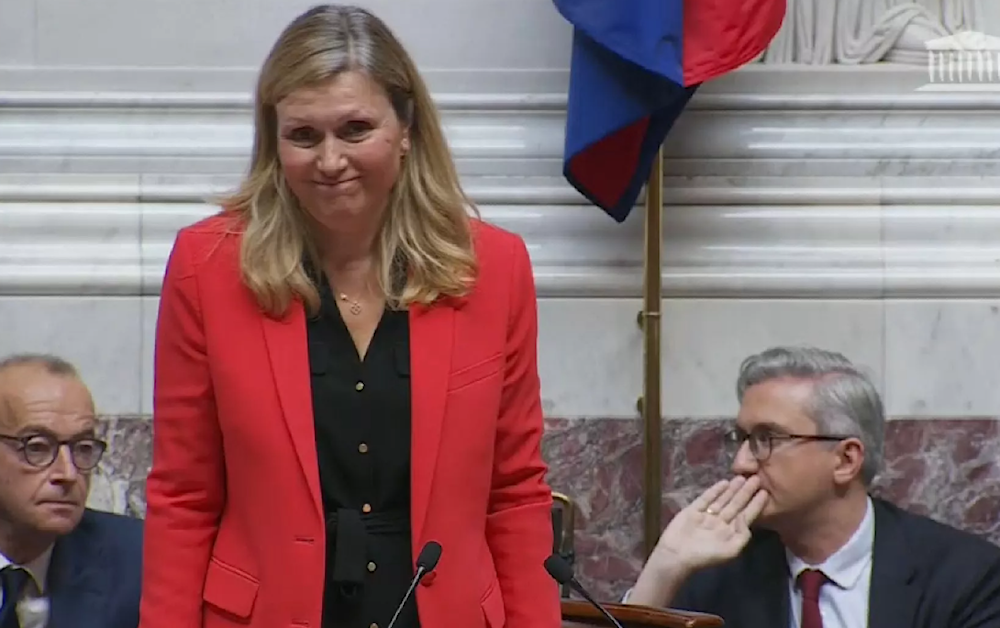Macron heads right to prevent left from controlling National Assembly
By pooling their forces, the centrists and center right gained electoral traction while simultaneously dealing a crushing blow to their opponents further to the left.
-

Parliament members convene during the vote for the lower house president in the National Assembly in Paris on July 18, 2024. (AP)
Emmanuel Macron's party reached a last-minute deal with right-wing legislators to win a critical vote in parliament on Thursday, paving the way for the French president to play a larger role in building the country's next administration than previously expected, Politico reported.
The two political factions formed an impromptu coalition to re-elect Yaël Braun-Pivet as leader of the French National Assembly. The vote was largely seen as a test of who could work together in France's broken parliament to choose a future prime minister.
By pooling their forces, the centrists and center right gained electoral traction while simultaneously dealing a crushing blow to their opponents further to the left.
Matthieu Hocque, a political expert at Paris' Millénaire think tank, believes that the victory will make it "more likely" for Macron to bring in a prime minister "from his camp," explaining that this has always been the case in modern French history.
Thursday's momentous vote occurred only 11 days after the New Popular Front (NFP), a wide coalition of left-wing parties, won a surprise victory in the snap election, garnering the most seats but coming far short of a majority.
After the center-right withdrew their candidate during the first round of the three-round ballot, Braun-Pivet and her left-wing opponent, Communist legislator André Chassaigne, were separated by only eight votes. Braun-Pivet won with the backing of only a few independent lawmakers.
An anonymous conservative lawmaker told Politico that the newly formed Republican Right political group would focus its efforts at this point on securing key positions in the National Assembly rather than discussing how to form a government. According to the official, the Republican Right has legally registered as an opposition party.
Conservatives have been showing signs of finding common ground regarding policy, presenting a "legislative package" aimed at "better-recognizing work and restoring authority."
Meanwhile, the NFP appears to be closer to collapse than before. The alliance's feuding and infighting prevented it from uniting around a single candidate for prime minister and even deciding on Chassaigne — a pleasant and well-regarded politician — necessitated discussions that lasted until the day before the vote.
'No choice' but to get along
Some members accused the Ensemble group, which supports Macron and the Republican right, of reaching an agreement secretly that kept the president's ally in her position despite Macron's party coming in second place in parliamentary elections.
A few MPs booed Braun-Pivet during her reelection address. When she stated that the French had "returned to the polls," one MP screamed, "Not for you."
"Many of our fellow citizens are going to ask themselves if this is a denial of democracy," Charles de Courson, a senior centrist legislator and a Macron critic, told reporters following the vote. Courson competed in the first two rounds of Thursday's tournament before withdrawing before the final vote.
Coalition building and cross-party compromise are unusual in French politics. However, a minority administration would be too unstable to endure, and with no single party coming close to achieving an outright majority in the snap election, a coalition government has long been seen as the most likely conclusion.
During her victory speech, Braun-Pivet stated that there is "no choice. We have to get along, we have to cooperate, we have to compromise, we have to have dialogue, we have to listen and move forward."

 4 Min Read
4 Min Read








